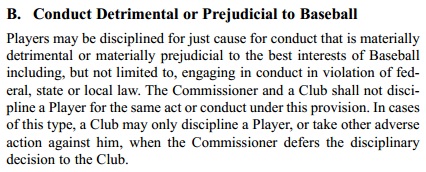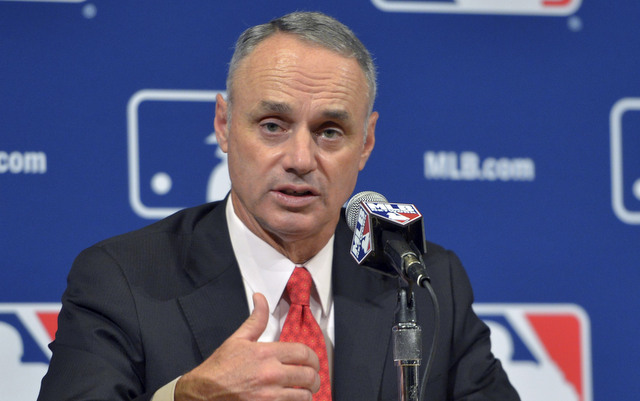Thanks to Marvin Miller, baseball is unlikely to ever have a ‘Deflategate’ – CBSSports.com
On Monday, the US Court of Appeals reinstated the four-game suspension given to Patriots quarterback Tom Brady over “Deflategate.” Our friends at Eye on Football have all the Deflategate coverage you could possibly need.
A federal judge vacated Brady’s suspension in September because it was “premised upon several significant legal deficiencies.” The NFL appealed the ruling, which led to the suspension being reinstated Monday.
The main reason the suspension was reinstated is the vague language in the NFL’s collective bargaining agreement, which gives the commissioner very broad authority. From the US Court of Appeals ruling:
2nd Circuit acknowledges NFLPA agreed to “especially broad” authority for Goodell, presumed “mutually satisfactory” pic.twitter.com/MSoqdoCznZ
— Dan Werly (@WerlySportsLaw) April 25, 2016
As with the NFL, MLB’s collective bargaining agreement gives the commissioner the power to hand down discipline for “conduct that is materially detrimental or materially prejudicial to the best interests of Baseball.” Here is Article XII (B) of the CBA:

However, as attorney and Forbes writer Marc Edelman notes, baseball is unlikely to ever have its own Deflategate controversy, in which discipline is handed down, vacated by a federal judge, then reinstated by an appeals court. That’s because former MLBPA chief Marvin Miller pushed for neutral arbitration in baseball’s first collective bargaining agreement of 1968.
In baseball, once discipline is handed down, the appeal goes in front of a three-person arbitration panel. The panel hears arguments from both sides, then gives a ruling. Per the terms of the CBA, the ruling can not be taken to a high court a la Deflategate. The panel ruling is final.
Here are two recent examples, one in which the arbitration panel sided with the player, and another in which the panel sided with MLB.
1. Ryan Braun in 2012. Braun was suspended 50 games after failing a performance-enhancing drug test, but the arbitration panel overturned the suspension because of chain of custody issues. MLB could not appeal, so Braun was off the hook and able to play for the Brewers. (He was later suspended for a different PED matter in 2014.)
2. Alex Rodriguez in 2015. Rodriguez was suspended 211 for his ties to Biogenesis. The arbitration panel sided with MLB but did reduce the suspension to 162 games. A-Rod could not appeal, so he attempted to file lawsuits against MLB, MLBPA, and the Yankees saying they conspired the get him out of baseball. That wasn’t going to work, so he dropped the suits and served the suspension. He, like MLB in the Braun case, had no recourse following the arbitration ruling.
Once upon a time baseball did not work this way. Before Miller helped form the player’s union, the commissioner was free to hand down discipline and the decision could not be challenged in court. That was back when the reserve clause allowed teams to essentially keep players indefinitely and pay them whatever they deemed appropriate.
Miller, who passed away in 2012 and is inexplicably not in the Hall of Fame, pushed for neutral arbitration with the goal being to bring structure to owner-player relations and to give players a way to stand up for themselves without the chance of a long, drawn out legal battle.




